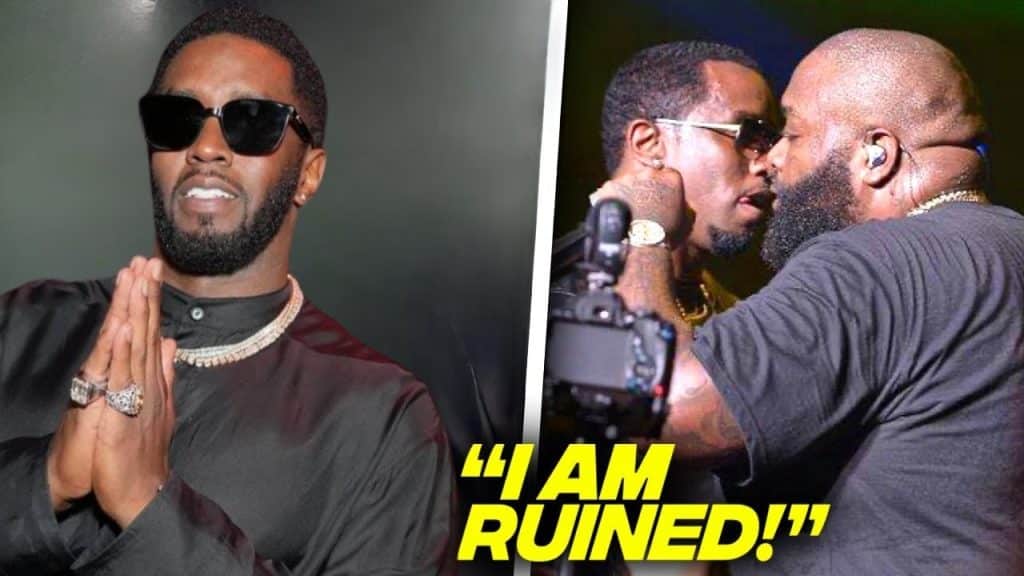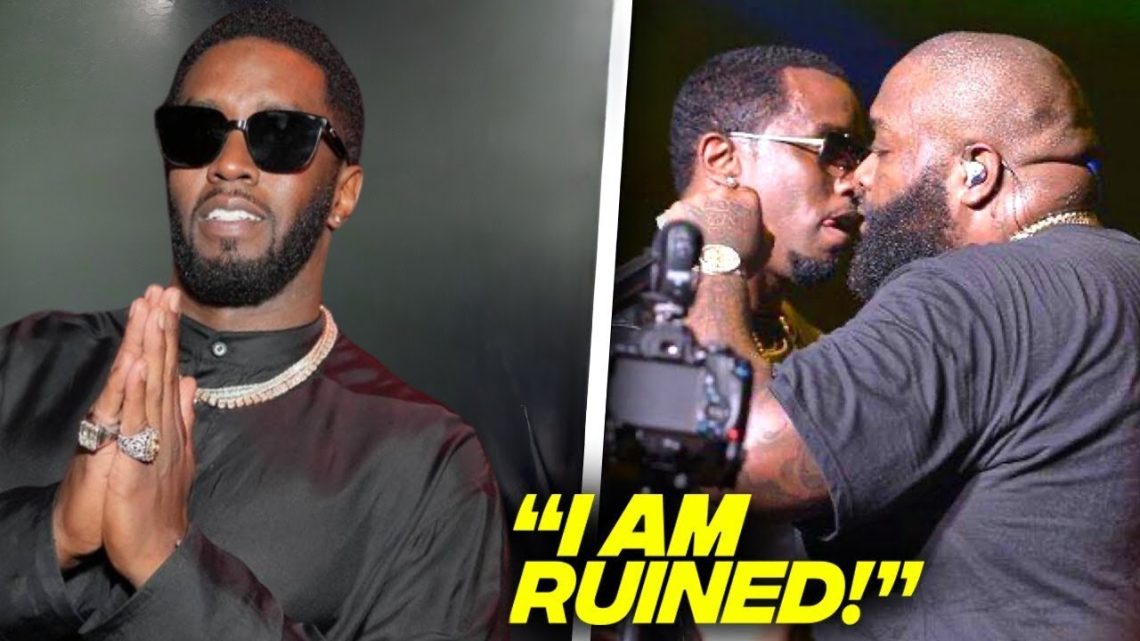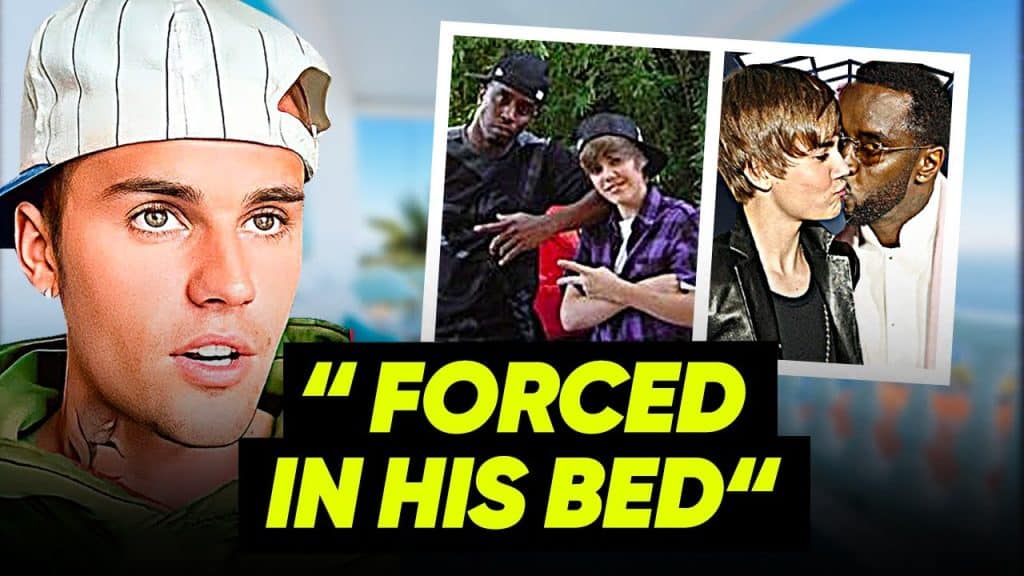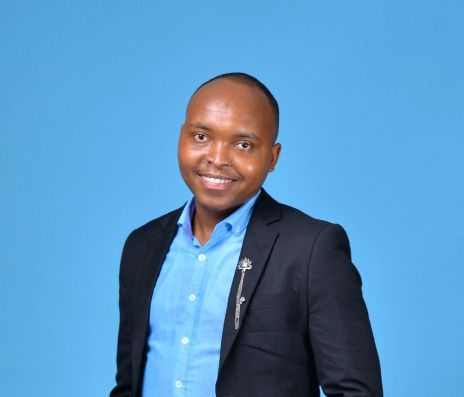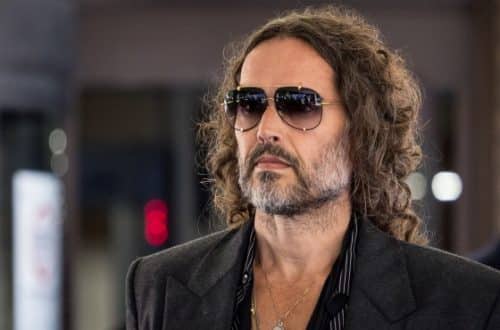The Rise and Fall of Sean ‘Diddy’ Combs: A Hip-Hop Icon’s Empire of Excess, Allegations, and the Ultimate Reckoning
Exposing The DARK SECRETS of Sean “Diddy” Combs That Led to His Downfall
by Morris Wambua | Staff Writer | Eternal Affairs Media
Sean “Diddy” Combs once embodied the American Dream in hip-hop form: a self-made mogul who carved his way to the top, reshaping the sound and culture of an entire generation. From “Bad Boy for Life” to a music empire worth hundreds of millions, Diddy represented both the glamour and grit of success. But in 2024, his carefully curated empire appears to be crumbling, with allegations of sexual abuse, trafficking, and manipulation that read more like a horror film than a hit single. As the charges against Diddy mount, the question isn’t just about whether he’ll be convicted—it’s about whether his entire legacy will survive the fallout.
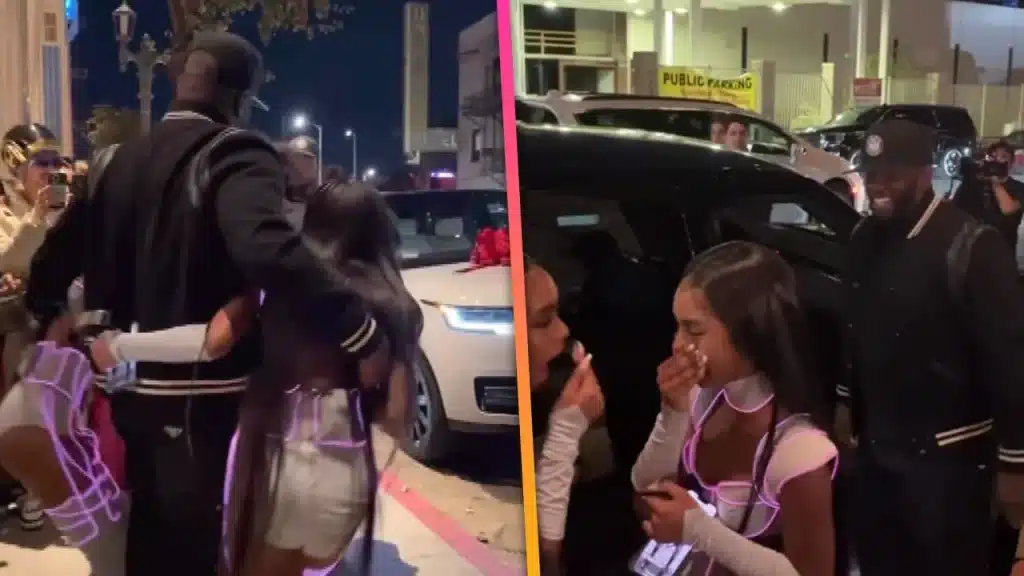
With accusations that span three decades and include everything from “freak offs” (a euphemism for drug-fueled orgies, apparently) to grooming minors, the case against Diddy is bigger than any tabloid scandal. It’s a reckoning. And in an era where powerful men are increasingly held to account, Diddy’s fall from grace may set a new standard for the music industry. But will it be enough to change an industry known for protecting its kings? Here’s a closer look at the allegations, the power dynamics that allowed them, and the massive implications this case holds for hip-hop—and beyond.
The Allegations: A Dark History of Abuse, Coercion, and Control
Cassie Ventura’s Lawsuit: The Spark That Lit the Powder Keg
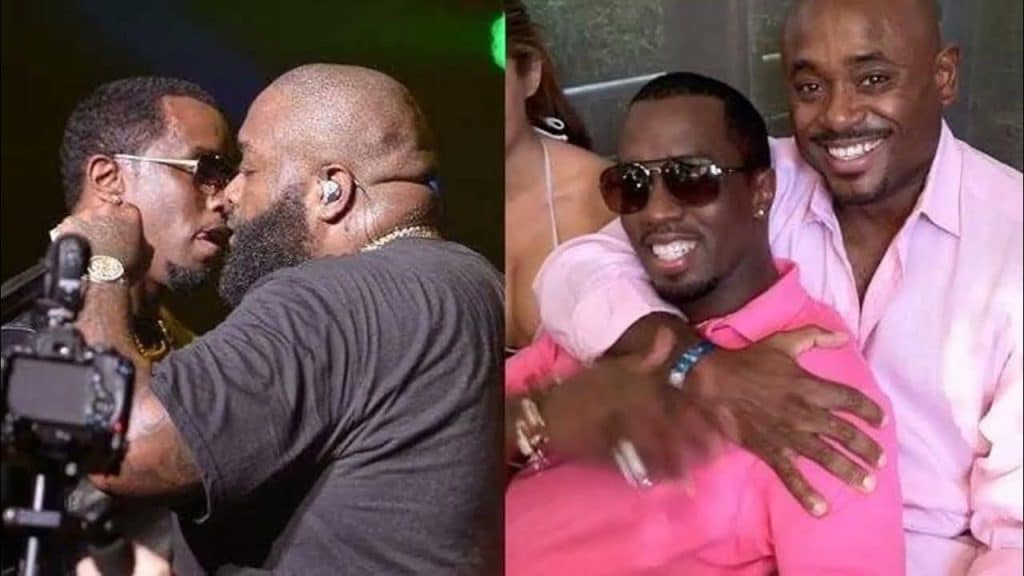
It all began with a single lawsuit in November 2023, filed by singer and model Cassie Ventura, a name that until then had been synonymous with R&B hits and glamorous red-carpet appearances. Cassie, who dated Combs on and off for over a decade, pulled back the curtain on a relationship that sounded less like a fairytale and more like a nightmare. In her lawsuit, she described a decade of abuse—physical, emotional, and sexual. Allegedly, she was not only subjected to regular beatings and threats but was also coerced into participating in “freak offs”—days-long, drug-fueled orgies that Diddy organized and filmed. Yes, you read that right. “Freak offs” were apparently a recurring part of life with Diddy, and no, they weren’t just “consensual fun” like his PR team would have you believe. According to Cassie, they were events meticulously designed to degrade and control.
Cassie’s allegations were graphic and disturbing, a bleak contrast to the polished image Diddy had crafted over three decades. In the days following the lawsuit, Diddy’s team scrambled, calling her claims “outrageous” and “unfounded.” But then, a strange thing happened: they settled. Quietly, quickly, for an undisclosed amount. The mogul’s PR team insisted he was innocent, claiming the settlement was just a way to avoid “further distractions.” But if you’re really innocent, why would you fork over a settlement in 24 hours? Cassie’s allegations didn’t just tarnish Diddy’s reputation—they opened a floodgate. In the weeks that followed, women and men who had attended those infamous parties came forward with similar stories, each more unsettling than the last.
More Lawsuits: The Avalanche Begins
Once Cassie’s case broke the ice, it seemed like every other week, another person came forward with their own horror story about Sean Combs. By the end of December 2023, multiple lawsuits had been filed, each one adding to a growing mountain of accusations. These lawsuits painted a picture that was almost too dark to believe—one where a man with immense wealth and influence allegedly used his power to manipulate, control, and terrorize those around him.
One lawsuit from Joi Dickerson-Neal, a former acquaintance, alleged that Diddy had drugged and assaulted her in 1991, filming the assault without her consent and later showing it to friends like it was a twisted home video. Another suit described violent encounters in which the hip-hop mogul allegedly choked, beat, and threatened his victims into submission. The plaintiffs, many of whom were young women and men new to the industry, claim that Diddy used his connections and influence to keep them quiet. Because really, what’s a few bruises and trauma when you’re one party away from breaking into the music industry?
But the cases kept piling up. From anonymous plaintiffs to former associates, more than a dozen accusers lined up, each with their own harrowing tale of manipulation and abuse. And this was only the beginning.
Power and Control: How the Industry Turned a Blind Eye
A Systemic Problem in Hip-Hop
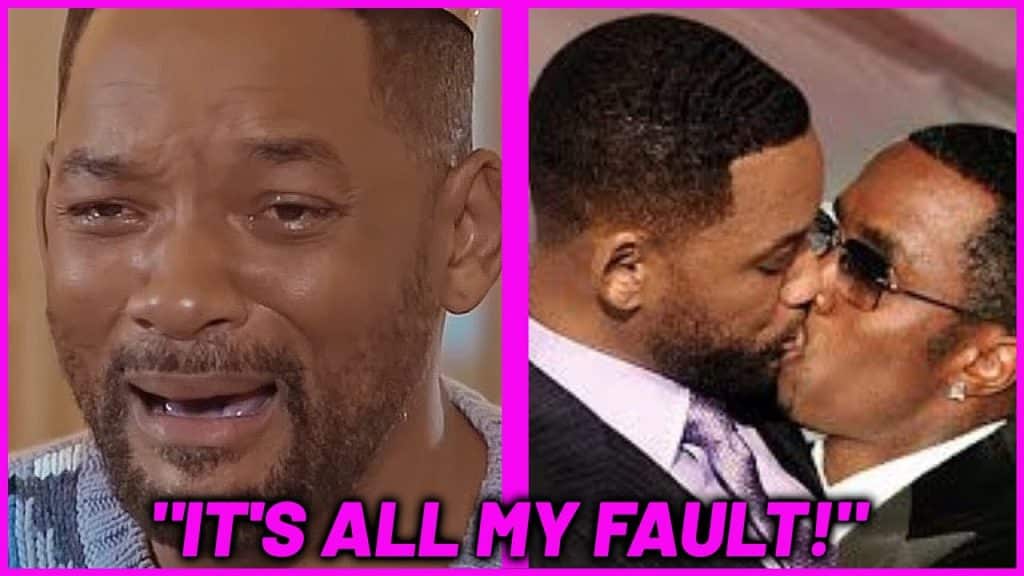
Diddy’s rise to fame wasn’t just his story; it was a symbol of hip-hop’s golden era, a time when power, money, and excess were celebrated. But beneath the glitz and glamour was an industry culture that often blurred the lines between success and exploitation. With Diddy at the helm, Bad Boy Records became the ultimate dream factory, churning out platinum records and iconic artists. But according to recent testimonies, it was also a place where abuse allegedly thrived unchecked.
The music industry—especially hip-hop—has long had a reputation for enabling the worst impulses of its biggest stars. As the allegations against Diddy stack up, it’s becoming harder to ignore how the system itself may have protected him. Those close to him allegedly helped facilitate his infamous “freak offs,” supplying drugs, arranging travel for unwitting participants, and, according to prosecutors, cleaning up after the damage was done. These weren’t just bystanders—they were accomplices, creating an insulated environment where Diddy could do as he pleased without fear of consequences. In the land of stardom, loyalty was often just another word for silence.
The “Freak Offs”: Not Exactly Your Typical Party
The word “freak off” might sound like something out of a Vegas bachelor party, but these gatherings were reportedly far more sinister. Prosecutors describe them as orchestrated affairs, complete with a meticulous schedule, handpicked attendees, and enough illicit substances to stock a pharmacy. These were “produced” events, where women (and men) were allegedly drugged, coerced, and, in some cases, filmed without their consent. According to Diddy’s accusers, these parties were less “wild night out” and more “get out while you still can”—if you were even sober enough to make it out.
For years, these gatherings were shrouded in rumors, whispered about but never fully acknowledged. In the world of celebrity, where eccentric behavior is almost expected, stories about “Diddy’s wild parties” were chalked up to his larger-than-life persona. But the recent lawsuits force us to look at these events in a new, unsettling light. Were they just parties, or were they events meticulously designed to control, exploit, and silence? And how many people in Diddy’s circle knew what was happening and looked the other way?
The Turning Point: #MeToo and the Adult Survivors Act Open the Floodgates
New Legal Tools Allow Survivors to Break Decades of Silence
The wave of allegations against Diddy wasn’t just a matter of timing—it was enabled by the New York Adult Survivors Act, which temporarily lifted the statute of limitations on sexual abuse cases. This act was a game-changer for victims who had been silenced by time, fear, and power dynamics. In a year when the #MeToo movement was still resonating through Hollywood, survivors of Diddy’s alleged abuses found an unprecedented opportunity to tell their stories.
The Adult Survivors Act isn’t just a legal loophole; it’s a recognition that trauma doesn’t expire. For the alleged victims of Diddy, it was a second chance at justice, a way to finally confront a man who had seemed untouchable. While some critics dismiss these claims as “cash grabs,” the sheer volume of accusers—and the strikingly similar nature of their stories—suggests something far more systemic. This isn’t just about one man’s abuses; it’s about a culture that allowed him to believe he could get away with it.
A New Era of Accountability in Hip-Hop? Don’t Hold Your Breath
Let’s not kid ourselves. Hip-hop has had its share of controversies, but accountability hasn’t exactly been its strong suit. The industry has long celebrated the excesses of its stars, often overlooking the damage left in their wake. But if Diddy—a figure as powerful and untouchable as they come—can be brought down, it might just send a message that even the biggest names can’t hide behind fame forever. The question is, will hip-hop actually change, or will it simply move on to the next superstar until their skeletons start rattling out of the closet too?
Diddy’s Defense: “It’s All a Money Grab!”
“ENOUGH IS ENOUGH”: Diddy Fights Back with Denials and Lawsuits
Diddy’s defense strategy has been a mix of defiance and denial. In December 2023, as accusations piled up, he took to Instagram with an all-caps declaration: “ENOUGH IS ENOUGH.” According to him, this whole scandal is nothing more than an orchestrated attempt to ruin his legacy. He insists the accusations are baseless and motivated by greed, a quick payday for those willing to make up a story. But here’s the thing: if every accusation against every celebrity is “just a cash grab,” then the entertainment industry must be full of people with truly terrible luck.
Diddy’s legal team has doubled down on the idea that these are “consensual encounters” spun out of proportion by opportunists. In their telling, Diddy’s “freak offs” were just good, clean (or at least consensual) fun, and the lawsuits are all about the money. The problem? With over a hundred alleged victims—and more coming forward every month—that narrative is starting to sound less like a defense and more like wishful thinking.
When Fame and Fortune Aren’t Enough to Buy Innocence
Diddy’s defense team has employed every tactic in the book, from casting doubt on the plaintiffs’ motivations to attacking the credibility of individual claims. They’ve even offered to put him under 24/7 private security to secure his bail, painting him as the “innocent family man” targeted by unscrupulous money-seekers. But as the public mood shifts and the evidence mounts, it’s looking less likely that a flashy legal team and a fat bank account will get him out of this one.
The Bigger Picture: What Diddy’s Downfall Means for Hip-Hop and the Music Industry
Will Hip-Hop Finally Face Its #MeToo Moment?
If Diddy’s case goes to trial—and if he’s convicted—it could set a precedent that reshapes how the music industry handles allegations of abuse. The trial could force an industry that has often been lax on issues of consent and exploitation to confront its own complicity. Will record labels and agents be held to higher standards? Will the industry finally take steps to protect young, impressionable artists who are often left at the mercy of powerful men? Or will this be just another scandal that fades as soon as the next hit single drops?
A Legacy in Tatters, and an Industry in Flux
As Diddy sits in a cell awaiting trial, his once-impenetrable legacy is on the brink of collapse. Even if he walks free, the cloud of suspicion hanging over him may never fully dissipate. For fans and industry insiders alike, the case is a reminder that even the most celebrated icons are still human—and sometimes, deeply flawed ones at that. Whether or not the music industry learns from this moment remains to be seen, but one thing is certain: Sean “Diddy” Combs will never be seen the same way again.
In the end, the story of Diddy’s fall from grace isn’t just about one man’s alleged crimes. It’s about the hidden cost of power, fame, and an industry that too often enables the worst impulses of its brightest stars. And as the world watches this case unfold, one question looms larger than all the rest: is hip-hop finally ready to confront its darkest truths?
